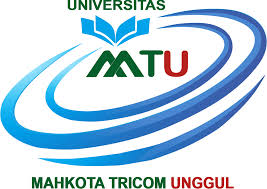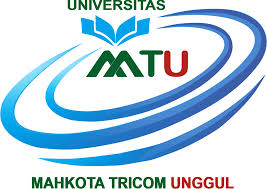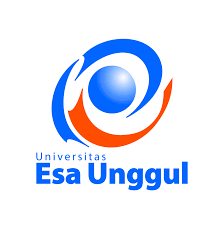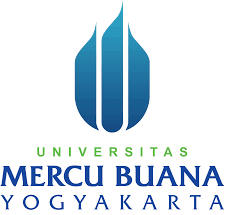Analysis of Students' Science Process Skills (SPS) in the Problem Based Learning Model of Class XI SMAN/MAN in Luwu Regency
DOI:
https://doi.org/10.55927/fjst.v4i5.73Keywords:
Science Process Skills (SPS), Problem Based Learning (PBL), Senior High School StudentsAbstract
This study aims to analyze the level of students' Science Process Skills (SPS) in the Problem Based Learning model in class XI SMAN/MAN Luwu Regency on the reaction rate material. The research sample consisted of 93 students from SMAN 1 Luwu, MAN Luwu, SMAN 7 Luwu, and SMAN 18 Luwu in the 2024/2025 academic year. The instrument used was descriptive questions on the reaction rate material. Data were collected by giving questions at school and analyzed using descriptive statistics. The results showed that the level of students' SPS was in the poor category with an average score of 40.76. Two SPS indicators, namely applying concepts and observation, were in the fairly good category, while the other three indicators were in the poor category.
References
Adinugraha, F. (2018). Science Process Skills Approach in the Form of Scientific Work Projects to Cultivate Students' Interest in Learning. Journal of Educational Dynamics, 11(1), 14–29.
Adiningsih, MD, Karyasa, IW, & Muderawan, IW (2019). Profile of Students' Science Process Skills in Acid-Base Titration Practicum. Indonesian Journal of Chemical Education, 3(2), 94.
Aini, VN (2023). Analysis of students' science process skills on global warming material based on e-learning at SMPN 52 Surabaya. 12(3).
Astuti, R., Sujana, A., & Hanifah, N. (2017). Problem-Based Learning to Improve Science Literacy on the Material of the Relationship between Food and Health. 2(1).
Arsad Bahri, Saparuddin, & Hidayat, W. (2022). Analysis of Students' Science Process Skills in Jenepontor Regency. 2022 National Seminar on Research Results "Building the Nation with Continuous Innovation Through Research and Community Service" LP2M-State University of Makassar, 479–491.
Bakar, A., & Halim, A. (2015). Application of Process Skills Approach to Improve Science Process Skills and Junior High School Students' Concept Mastery on Pressure Concept. 03.
Cahyani, V. P., Fadly, D., Islawati, I., & Ahmad, F. (2024). THE ATTITUDE OF CHEMISTRY EDUCATION STUDENTS TO SOCIO-SCIENTIFIC ISSUES (SSI) IN CHEMISTRY LEARNING. INSECTA: Integrative Science Education and Teaching Activity Journal, 5(2), 212-223.
Darmadi, Hamid. 2017. “Development of Learning Models and Methods in Student Learning Dynamics.” Yogyakarta: Deepublish.
Darmayanti, NWS, Wijaya, IKMWB, Sanjayanti, NPAH, & Janawati, et al. Pt. A. (2021). Analysis of Basic Science Process Skills Aspects in Science Textbooks for Grade VI Elementary School Students. Nusantara Elementary Education Journal, 7(1), 130–145.
Eliyana, E. (2020). Analysis of Science Process Skills of Students Learning Science on Green Plants Material in Grade V Students of SDN 3 Panjerejo during the Covid-19 Pandemic. EDUPROXIMA: Scientific Journal of Science Education, 2(2), 87-100
Hanafiah, A. (2015). The Influence of Problem Based Learning (PBL) Model on Students' Science Process Skills (SPS) on Reaction Rate Material. Thesis. Syarif Hidayatullah State Islamic University Jakarta.
Hartati., Azmin, N., Nasir, M., & Andang. (2022). Students' Science Process Skills through Problem Based Learning (PBL) Learning Model on Biology Material. Scientific Journal of Educational Sciences, 5(12), 5795-5799
Hidayah, R., & Pujiastuti, P. (2016). The Effect of PBL on Science Process Skills and Science Cognitive Learning Outcomes in Elementary School Students. Prima Edukasia Journal, 4(2), 186.
Hmelo-Silver, C.E. (2004). Problem-based learning: An instructional model and its constructivist framework. Educational Psychology Review, 16(3), 235-266
Ilhami, A., Wahyuni, S., & Dian Permana Putra, N. (2023). Improving Students' Science Process Skills Through Problem-Based Learning Models: Systematic Literature Review: Improving Students' Science Process Skills Through Problem-Based Learning Models: Systematic Literature Review. Edu-Sains: Journal of Mathematics and Natural Sciences Education, 12(2), 8–15.
Islawati, I., & Samsuddin, Y. B. (2024). Literatur Review: Implementasi PjBL terhadap Kreativitas dan Berpikir Tingkat Tinggi Siswa. Indo-MathEdu Intellectuals Journal, 5(6), 7530-7540.
Islawati, I., Fadly, D., & Ahmad, F. (2024). Pengaruh Model Pembelajaran Berbasis Masalah (PBL) Terhadap Kemampuan Berpikir Kritis Mahasiswa Kimia. Venn: Journal of Sustainable Innovation on Education, Mathematics and Natural Sciences, 3(2), 59-65.
Islawati, I., & Samsuddin, Y. B. (2024). Efektivitas Model PjBL terhadap Keterampilan Kolaborasi Mahasiswa pada Perkuliahan Statistik Penelitian. Indo-MathEdu Intellectuals Journal, 5(6), 7546-7557.
Islawati, I., & Munawwarah, M. (2024). Overview of Student Understanding in Research Statistics Lectures Using the PJBL Method. Jurnal Studi Guru dan Pembelajaran, 7(3), 1222-1234.
Islawati, I., & Samsuddin, Y. B. (2025). Meningkatkan Martabat Guru: Strategi Pengakuan dan Penghargaan Profesi Kependidikan di Era Digital. Indo-MathEdu Intellectuals Journal, 6(1), 670-679.
Islawati, I., Samsuddin, Y. B., & Sugiarti, S. (2025). Strategi Pengembangan Profesionalisme Guru di Era Digital untuk Menghadapi Tantangan Pembelajaran Gen Z. Indo-MathEdu Intellectuals Journal, 6(1), 635-645.
Lianti, Y., & Zuhra, F. (2021). Efforts to Improve Students' Science Process Skills in Heat Transfer Material through the Problem Based Learning Learning Model. JUPENDAS: Journal of Elementary Education, 8(2), 20-25
Nugraha, AJ, Suyitno, H., & Susilaningsih, E. (2017). Analysis of Critical Thinking Skills Reviewed from Science Process Skills and Learning Motivation through PBL Model. Journal of Primary Education, 6(1), 35–43.
Partono, P., Wardhani, HN, Setyowati, NI, Tsalitsa, A., & Putri, SN (2021). Strategy to Improve 4C Competence (Critical Thinking, Creativity, Communication, & Collaborative). Journal of Educational Science Research, 14(1), 41–52.
Ramdani, R., Islawati, I., & Zubair, S. (2025). Analysis of the Influence of the Talking Stick Method in the Discovery Learning Model on Students' Conceptual and Cognitive Understanding of Redox Reactions Material. East Asian Journal of Multidisciplinary Research, 4(3), 1231-1244.
Sariani., Anas, M., & Sukariasih, L. (2020). Improving Science Process Skills and Learning Outcomes of Momentum and Impulse Subject Matter through Problem-Based Learning Models for Students of SMAN 2 Mawasangka Tengah. Journal of Physics Education Research, 5(1), 100-108
Setiawan, Imam, Nurma Yunita Indriyanti, and Sri Mulyani. 2018. “Chemistry Learning Profile Based on the 2013 Curriculum in Gorontalo City and Surakarta City for Class X in the 2016/2017 Academic Year.” Journal of Chemical Education Innovation 12 (1).
Suryani, E., Amir, A., Nurfathurrahmah, N., Azmin, N., & Hartati, H. (2021). Identification of Learning Difficulties of Grade VIII Students of Smpn 3 Kota Bima on the Material of Diversity of Living Things in the 2020/2021 Academic Year. Journal of Natural Science Education (JP-IPA), 2(01), 23-27.
Trilling, B., & Fadel, C. (2009). 21st Century Skills: Learning for Life in Our Times. Jossey-Bass
Yulianti, E., & Gunawan, I. (2019). Problem Based Learning (PBL) Learning Model: Its Effect on Concept Understanding and Critical Thinking. Indonesian Journal of Science and Mathematics Education, 2(3), 399–408.
Yunita, E., Nurhadi, D., & Kusumawardani, A. (2018). The Effect of Problem-Based Learning Model on Science Process Skills and Student Learning Outcomes in Accredited Senior High Schools. Journal of Education and Learning, 15(3), 122-132.
Yunus, M., Islawati, I., Febrianti, N., & Sugiarti, S. (2024). The Correlation Between the Implementation of Chemistry Learning and Student Learning Outcomes Using a Google Classroom-Based Blended Learning Model. Journal of Educational Analytics, 3(3), 447-456.
Downloads
Published
Issue
Section
License
Copyright (c) 2025 Nirmalasari Nirmalasari, Halimah Husain, Netty Herawati, Sakinah Zubair

This work is licensed under a Creative Commons Attribution 4.0 International License.


































